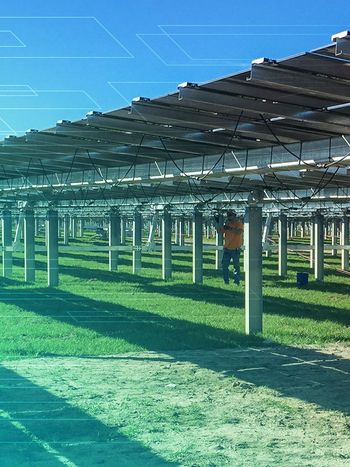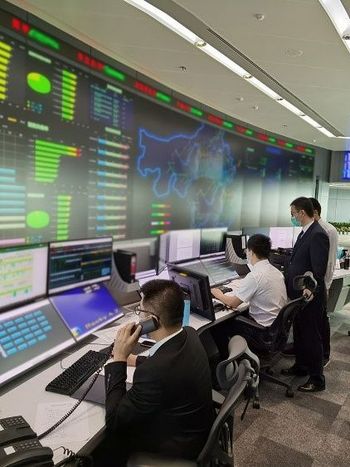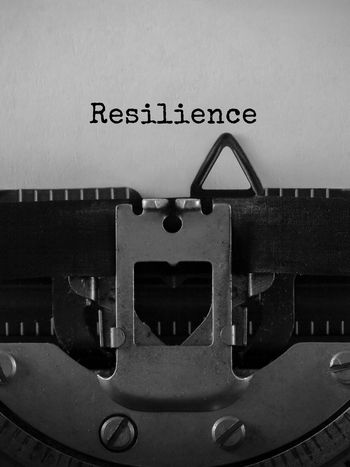ETIP SNET views on post COVID 19 recovery
The COVID19 pandemic has greatly affected all aspects of life and has fully revealed the crucial role of energy in modern society. Without energy the vital functions of the health system, but also of the much dependent telecommunication system would collapse. The importance of an efficient, resilient energy system in such extreme conditions cannot be overstressed.
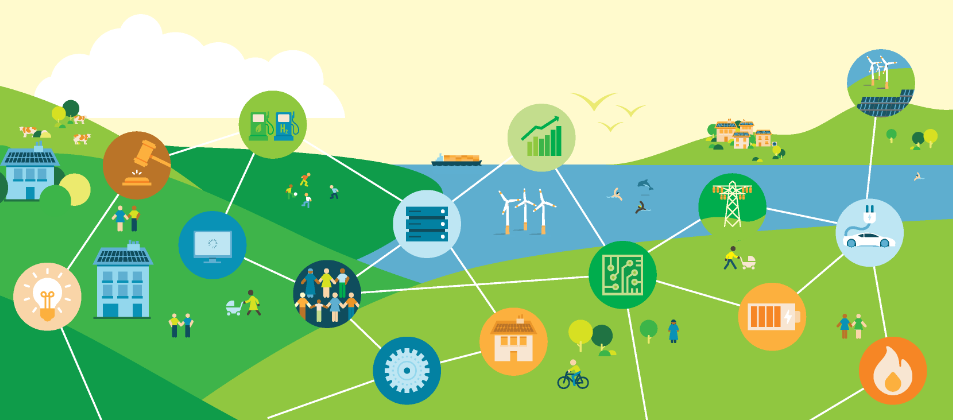
By Guido Guida (ETIP SNET Chair), Nikos Hatziargyriou (ETIP SNET Vice-Chair), Eliano Russo (ETIP SNET Vice-Chair)
ETIP SNET provides consolidated views of its stakeholders that include the major European associations of Energy, like Transmission System Operators (TSOs), Distribution System Operators (DSOs), Research and Academia, Storage technology and service providers, consumers, flexible thermal and renewable generators, ICT network and service providers, equipment manufacturers and providers, Interface to other energy carriers, Regulators and National Representatives. This paper provides the collected feedback on the mitigation measures that have been put in place and provides an overview of recovery recommendations. Despite few differences, the common message is to strengthen support for the transition towards climate neutrality and sustainable ecosystems. In more detail, the main stakeholder associations’ views follow:
Transmission System Operators (TSOs)
TSOs have taken mitigation measures that include doubling of staff for National main Control Center and National backup Control Center and Regional Control Centers, where needed. In some cases, grid maintenance works have been postponed or cancelled, due to travel restrictions without risking system operation in short or medium terms. Moreover, hygiene and sanitary measures, especially for operational staff and travel restriction or cancellation of arrangements to prevent virus contamination have been imposed. Further organisational staff measures include access to control rooms by people strictly needed for continuity of operation, partial confinement of staff working in control rooms (required to stay at home when they are not in shift), parallel work of main and back-up Control Rooms + support/back-up offices, teleworking for non-core activities, etc. Today, system operation remains safe in Europe and all power systems are in normal state, while in all countries, the electricity market (balancing, cross-border exchanges in day ahead and intraday) is functioning normally.
Finally, ENTSO-E pledges for a climate-neutral resilient and innovative European economic recovery to recognize the key-enabling role of electricity TSOs in the energy system integration; to put electrification at the heart of EU decarbonisation policies; to invest in low-carbon and fit-for-purpose infrastructures and their digital “twins” and to ensure a smooth recovery or the whole electricity value chain.
Distribution System Operators (DSOs)
The challenge for the DSOs is to ensure continuity and maximisation of operations both for field and office activities. For ensuring these, DSOs have put in place ad-hoc mitigation measures, related to the organization of work, like activation of agile/smart working for employees in all areas, except for essential activities linked to the functioning of power generation and distribution, reduction to the minimum of operating and maintenance personnel and shift modifications to avoid contact between squads and to be able to replace personnel in Operating Centers, in case of symptoms. Together with sanitary and hygienic measures to combat the spread of the virus, essential services such as outage management, repair of unsafe situations of the network and urgent connections are ensured.
E.DSO members are looking forward by identifying key actions and ‘shovel ready’ projects which can help kick-start the economy as well as contribute to the decarbonization of society with timely investments in the distribution grid.
Transmission and Distribution industry
While the transmission and distribution industry has been able to continue its essential operations to provide network operators with the necessary equipment and services, activity has been affected by a number of issues [1], including reduced market demand and supply chain disruptions. The request for the European Commission by T&D Europe members is to take the following measures as part of the recovery plan for Europe:
1. Boost current commitments
- Support and implement the establishment of Green Recovery Investment Packages acting as accelerators of the transition towards climate neutrality and healthy ecosystems.
- Fully integrate the proposed economic stimulus packages and the European Green Deal in the EU and national recovery strategies
- Closely link the European Investment Bank lending policy for infrastructure to the Clean energy package objectives and the EU long-term decarbonisation strategy
- Track investments in transmission and distribution networks as part of the annual State of the Energy Union;
2. Ensure Grid quality & resilience (to be able to manage fluctuation in consumption and production, and deal with cyber-attacks)
- Bring forward the necessary investments in Europe’s electricity networks as a cost-effective no-regret option for rapid recovery, and ensure network stability
- Give demonstrated importance of maintaining resilient infrastructures, prioritise infrastructure investment in modernizing and future-proofing Europe’s electricity networks, inter alia, through the inclusion in the National Energy and Climate Plan of clear investment and development plans for the electricity network;
3. Change the rules and secure investment planification
- Review the investment framework for network operators by removing the current regulatory CAPEX bias and transition to a TOTEX approach, to incentivise the uptake of green technologies and solutions, which contributes to a cost-efficient operation of the network;
- Provide system operators regulatory certainty that investments can be recovered via the network tariff and that the remuneration will remain at a predictable and market-based level;
- Adopt EU or international rules for ownership, protection, liability and transfer of all data types (not just smart meter) in energy markets and grid operation.
- Encourage an education environment that promotes the training of high-skilled workforce in the field of electrical engineering and green technologies related sectors.
4. Speed up the global electrification of other sectors
- Modernise the energy taxation regime to accelerate the shift towards decarbonizing electricity consumption and the increased uptake of clean electricity in end-use sectors, inter alia, in heating, electric vehicles and shore-side electrification;
- Swift and correct implementation and enforcement of the Clean Energy Package in Member States, by increasing transparency through the provisions of the EU Electricity Directive on assessing, monitoring and future-proofing the electricity grid;
- Analyse and implement the best way to transform demonstration projects in large-scale industrial investment and deployment, thereby enabling Europe to turn innovation into employment and leadership;
- Strengthen market surveillance enforcement to ensure that all grid technology on the EU market complies with the mandatory circular economy and energy efficiency criteria;
- Mainstream clean and direct electrification in the heating & cooling and transport sectors, as the most cost-effective and energy efficient strategy to address climate change and enhance the quality of life of all Europeans. Deploy without delay the technologies that are already available to decarbonise industrial processes, transport and the heating & cooling sector.
European Association for Storage of Energy (EASE)
The COVID19 pandemic has underlined the importance of having a resilient, flexible energy system capable of coping with changes in energy demand and supply, amid high shares of RES generation. It has also increased the necessity of investing in clean energy technologies in order to address climate change while also supporting the transition to a decarbonised economy, addressing both the technological development and deployment as well as the socio-economic changes that this entails. Although the full impact of COVID19 on the energy storage sector is not clear, there are clear takeaways for policymakers:
- Prioritise reaching 55% greenhouse gas emissions reductions by 2030, speeding up current efforts and ensuring rapid implementation of the various proposals as well as the Clean Energy for All Europeans Package;
- Put the European Green Deal front and centre: policy commitments coupled with investments are essential to support clean energy technology deployments, particularly in the energy storage sector where there are many start-ups and new actors;
- Explicitly include funding for energy storage technologies in the Just Transition Fund and Renovation Wave, where energy storage has an important role to play;
- Ensure that EU policies are technology neutral rather than supporting only selected energy storage solutions.
- Increase investments in RD&D projects for all energy storage technologies to support further development and deployment of innovative storage solutions to help EU Member States transition cost-effectively to net-zero by 2050 and to enhance the competitiveness of EU industry.
European Federation of Renewable Energy Cooperatives, REScoop.eu
The crisis brought about by the COVID19 is putting a vital question: Are we equipped to develop responses to this crisis that will ensure the long-term stability of our societies? The answer can be yes, only if we ensure that the measures taken make our economies and societies more resilient in the long term, whilst it is crucial to develop solutions that will revitalise our economy in the short and medium term.
The measures taken after the economic crisis in 2008 mainly bailed out the big financial institutions without tackling some of the underlying flaws of our economic system, namely consumerism and the environmental destruction that goes with it, wealth concentration, and lack of democratic control at local level. It left many citizens disempowered at the time, and once again today, those suffering the most from the economic crisis ahead will likely be the small businesses in our neighbourhoods. The solutions proposed today need to safeguard the livelihoods of European citizens.
One very concrete way to move towards such a society will be to strengthen the growth of energy communities in Europe. By investing in and operating clean energy technologies and measures, energy communities have been known to strengthen the social and economic welfare of their community, whilst taking measures to reduce CO2 emissions and preserve the environment. They hence provide an economically sound model that tackles the exact challenges we need to solve to build a sustainable future for ourselves. [2]
COGEN Europe
During times of crisis, it is important that society can rely on a stable energy supply of electricity and heat. Cogeneration gives this energy security to citizens and businesses by allowing them to self-generate their energy in a reliable and affordable way. Moreover, cogeneration supports grids with flexible electricity at times of crisis to make sure that lights stay on and homes remain warm. Doing so, cogeneration empowers consumers at local level to take control of their energy future and be the beneficiaries of the energy transition.
The COVID19 crisis revealed the need to build a more sustainable economy. The Green Deal is a chance to restart Europe and drive our economy with a greater focus on energy efficiency, distributed generation, systems integration and renewable energy across the entire energy value chain.
To achieve this, the cogeneration sector has the following recommendations for a green EU Recovery Strategy:
- EU’s recovery strategy should support industry to invest in cleaner energy solutions that will help them bounce back more resilient and more competitive. Europe needs a massive plan to deploy the most energy efficiency and renewable energy solutions, such as cogeneration, district heating, wind and sun across all key sectors of the economy, including sectors not covered by the EU Emissions Trading Scheme. Programmes like the European Investment Funds and Cohesion Funds, Horizon Europe or the Innovation Fund should also be redirected towards this goal.
- Despite the negative impact of the crisis on energy demand, “energy efficiency first” should remain a key criterion for recovery package. As industrial activities return to pre-crisis levels, high efficiency in production and consumption will ensure industry and Europe can do more with less, thus making companies more sustainable and competitive.
- EU recovery funding should in particular target the modernisation of heating & cooling, with a special focus on energy efficient solutions like cogeneration. This will ensure high decarbonisation gains, significant energy savings, contributions to industrial competitiveness and a reduction of energy poverty.
- EU recovery support must also help scale up innovative solutions like hydrogen and stationary fuel cells use in buildings, for consumers to more readily gain access to clean, secure and affordable energy at all time. Hydrogen and its use in the most efficient solutions like cogeneration (using fuel cells, turbines, engines) in larger industrial applications should also be supported, to make the most out of this valuable energy while minimising its waste.
- Support to energy systems integration solutions should be granted. The COVID19 stimulus packages must consider synergies between different energy solutions, infrastructures and their operation, with a view to maximise energy efficiency, renewable energy and flexibility across electricity, heat and gas.
- A recovery strategy should dedicate resources to energy security, energy resilience and autarky for the health sector, to ensure their present and future security of supply in times of crisis.
About ETIP SNET
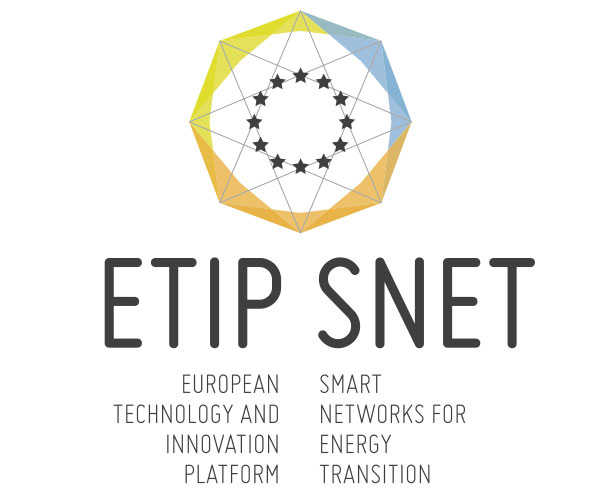
Since 2016, the key energy system players in Europe, represented through their EU associations, platforms and national stakeholders, started a strong and unique cooperation under the umbrella of ETIP SNET. With the support of hundreds of industry and research experts throughout Europe, it guides European R&I activities in the area of Smart Energy Networks. This covers areas such as energy systems management, storage and interface between power, gas, heat or transport networks, flexible generation, digitalisation of the energy systems, and energy customer involvement. Learn more
- [1] These issues have appeared in one or more countries in which T&D Europe members operate
- [2] www.euractiv.com/section/energy/opinion/a-resilient-eu-economy-must-be-built-on-strong-local-communities/
